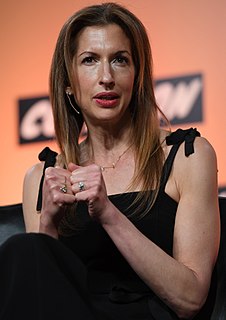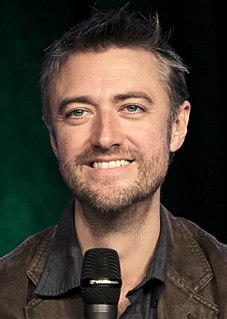A Quote by Jeffrey Eugenides
Reading a novel after reading semiotic theory was like jogging empty-handed after jogging with hand weights. What exquisite guilt she felt, wickedly enjoying narrative! Madeleine felt safe with a nineteenth century novel. There were going to be people in it. Something was going to happen to them in a place resembling the world. Then too there were lots of weddings in Wharton and Austen. There were all kinds of irresistible gloomy men.
Related Quotes
In reading a novel, any novel, we have to know perfectly well that the whole thing is nonsense, and then, while reading, believe every word of it. Finally, when we're done with it, we may find - if it's a good novel - that we're a bit different from what we were before we read it, that we have changed a little... But it's very hard to say just what we learned, how we were changed.
I sold my first short story while I was home on maternity leave, then began working on novels. Since I was reading and enjoying romance novels at the time, the first two unpublished manuscripts I wrote were both romances. I sold my third novel, 'Call After Midnight,' to Harlequin Intrigue after submitting it unagented.
One of the things that really impressed me about Anna Karenina when I first read it was how Tolstoy sets you up to expect certain things to happen - and they don't. Everything is set up for you to think Anna is going to die in childbirth. She dreams it's going to happen, the doctor, Vronsky and Karenin think it's going to happen, and it's what should happen to an adulteress by the rules of a nineteenth-century novel. But then it doesn't happen. It's so fascinating to be left in that space, in a kind of free fall, where you have no idea what's going to happen.
I was surprised by the level of sophistication of the Special Operation forces. Among them were anthropologists and PhD candidates. I felt because I understand the patterns of nineteenth-century jihad in West Africa that I was definitely going to be more advanced than they were in comprehending what the militant rallying cry was.
From the moment my dad died, from the moment I found out there was the possibility of his dying, there were many surprises - years after, minutes after. The moments I was okay were as surprising as the ones that I wasn't. Making it through the eulogy without losing it. And then the guilt I felt about it. Surprise!
I prefer reading novels. Short stories are too much like daggers. And now that I'm done with my collection I'm more interested in different forms of writing and other kinds of narrative art. I'm working on a screenplay. But when I was working on Eileen, I definitely felt like I was taking a piss. Like, here I am, typing on my computer, writing the "novel." It wasn't that it was insincere, but there was a kind of farcical feeling I had when I was writing.
I've always loved short stories. Even before I was a writer I was reading short stories - there were certain writers where I just felt like they could do in a short story what so many writers needed a whole novel to do, and that was really inspiring to me. Alice Munro, I felt that way about from an early time. Grace Paley.
If someone does learn about the world from reading a novel of mine, that makes me very happy. It's probably not what brings me into the novel in the first place - I usually am pulled in by some big question about the world and human nature that I'm not going to resolve in the course of the novel. But I'm very devoted to getting my facts straight.
And as paralyzing and upsetting as all the never agains were, the final leaving felt perfect. Pure. The most distilled possible form of liberation. Everything that mattered except one lousy picture was in the trash, but it felt so great. I started jogging, wanting to put even more distance between myself and school. It is so hard to leave—until you leave. And then it is the easiest goddamned thing in the world.
I felt a funeral in my brain, and mourners to and fro kept treading, treading till I felt that sense was breaking through. And when they all were seated, a service, like a drum, kept beating, beating, till I felt my mind was going numb. And then I heard them lift a box and creak across my soul with those same boots of lead again, then space began to toll, as if the heavens were a bell and being were an ear, and I, and silence, some strange race wrecked, solitary, here. Just then, a plank in reason broke, and I fell down and down and hit a world at every plunge, and finished knowing then.







































